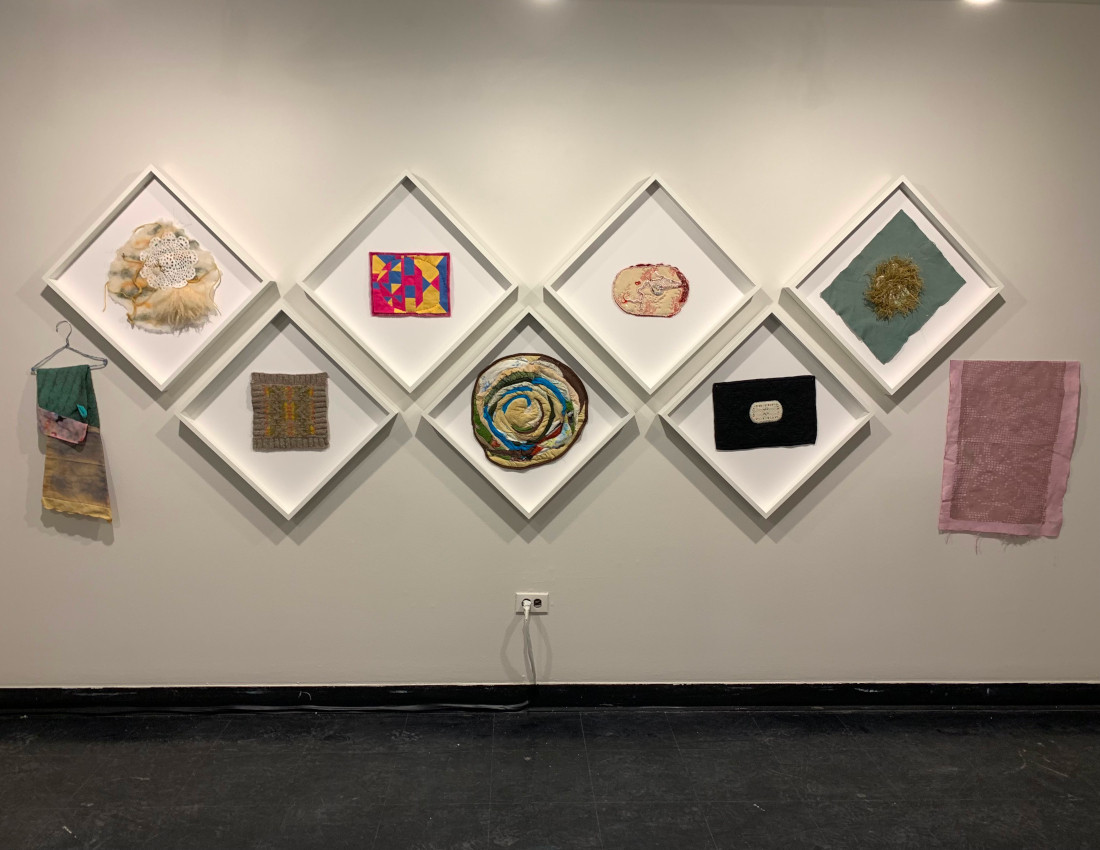The need to reconnect
Conversational Threads and settler-colonial relations
Conversational Threads opened at Gallery 1C03 at the University of Winnipeg on March 2. Lindsey Bond, the artist behind the exhibition, uses textiles and multimedia art forms to explore intergenerational decolonization, the weight of inheritance, white privilege and her ancestors’ legacy.
As a settler woman who grew up in Amiskwaciwâskahikan (Edmonton), Bond uses art to probe the space between her family’s history and colonial harms. “I am a white body,” she says. “I think a lot about my white body in terms of where we’re at in what is known as Canada.”
Prior to her graduate studies, Bond was primarily a photo- and video-based artist. Her elderly aunts influenced her decision to work with textiles.
In 2018, she began to examine her family history and was given what she calls the family Red Rose Tea Tin Archive. Her aunt Betty, the family genealogist, had saved a tin full of photographs, negatives and other documents, which included a recorded history of stories kept in a duotang.
In collaboration with her aunts, Bond used the archive materials to create a quilt. Her aunts served as storytellers, while Bond stitched the physical pieces together.
“I wanted to work in a medium that they were comfortable with, that made sense for them visually,” she says.
Bond first began unravelling her settler-colonial status in 2014.
She was invited to the Train of Thought residency, organized through Jumblies Theatre and overseen by Ruth Howard. She was also working on Negotiating Spaces, a project that collected stories from those taking trains or visiting stations.
As time passed, Bond became increasingly aware of the stories within her possession and who they belonged to. She wanted to do her best to look after these stories.
Her work with the others’ narratives drove her to further investigate her own story. As a single mom, and at a time of transition and uncertainty, Bond says she needed to ground herself. Her relationship with her son influenced her self-reflection.
“I wanted to be able to pass down something to my son that would be a little bit more relational, a little bit more connected and a little bit more about relationship-building as opposed to this settler way of separation and isolation,” she says.
Bond says it was important that her son learn their family history and accompany her while working on this project.
“I was never told any family stories,” she says. “There’s a lot of estrangement and separation in (my) family ... I want my son and my daughter to be grounded in who they are (and) where they come from.”
Conversational Threads confronts settler repair work. For Bond, this is about stopping to reflect and listen.
“In my questioning of our family history or our family stories, and having these conversations with my aunts, they don’t know how to acknowledge settler colonialism. They don’t understand it as a construct.”
As the first person in her family to attain a university education, Bond says she was able to recognize her privilege, confront her ancestors’ legacies and acknowledge existing structures.
“In the family stories, there’s a lot of nostalgia around the settlers, around the pioneer hero narrative. And within the nostalgia, there’s a lack of questioning,” she says.
Bond’s desire for open dialogue is inspired by her search for the stories not being shared. In Conversational Threads, quilting and textile work serve as a catalyst for ancestral healing and open communication within relationships.
Conversational Threads will be at Gallery 1C03, the official art gallery of the University of Winnipeg, until April 14. The gallery is open Monday to Friday from 12 to 4 p.m.
Published in Volume 77, Number 21 of The Uniter (March 9, 2023)








